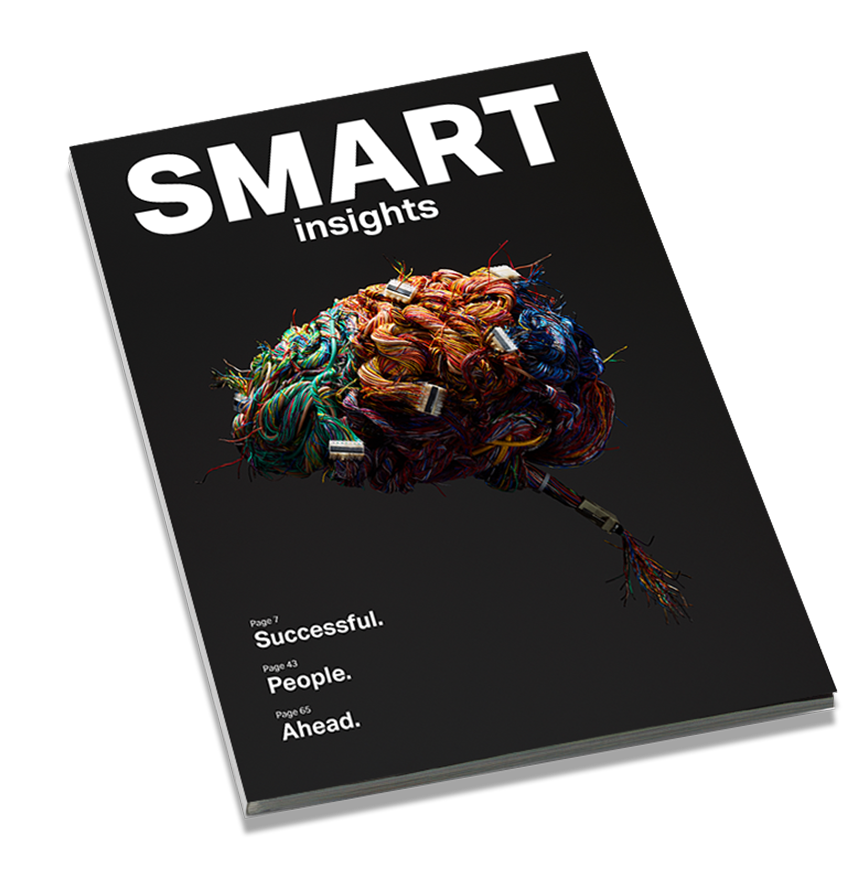This interview was published in the Ergon Magazine SMART insights 2019. Order your free copy now ->
The stereotype of a software engineer working – introverted and alone – in a dark, subterranean room could not be further from reality. Today, communication and collaboration, both with clients and other developers, are key. Daniel Koller speaks about his goals at work and in the wider software community.
What do you like about your job at Ergon?
The work, for one thing. It’s challenging and never boring. Solving problems for customers on a daily basis means I always have to make compromises to achieve the very best for the client – you are ultimately working within temporal and financial limits. For me, an optimal outcome is one that stays good for as long as possible.
Is sustainable, in other words?
Yes, you could say that, but "sustainable" means different things to different people. To me, where software is concerned, it means a solution that can cope with changing requirements further down the road. Ultimately, the customer’s requirements are constantly evolving.
You often hear people saying that the most important thing is to understand precisely these requirements – to fully grasp the customer’s problems and continuously seek new ways of approaching them. What has your experience been in this respect?
I want a solution to pay off for a customer as soon as possible, and for that to happen, I have to have understood the problem; working closely with the customer and getting regular feedback are essential. I could easily spend a year programming in the silence of my office and then present the results to the customer, but what if I had been barking up the wrong tree all that time? Regular, jointly reviewed iterations are definitely the way to go.
Software development is a knowledge business, and this means you never stop learning and asking questions, like: How does the solution fit, what is the problem, what is the next important point for the customer, has the nature of the problem changed?
You said liking the work was one thing. What are the others?
Having a say is just as important to me as the work. I have twice been a member of a salary working group and I was also involved in working up Ergon’s "Vision". I contributed to the "Continuously learning" and "Always one step ahead" sections, for example.
So this kind of thing really matters to you?
Yes. I am also one of those people who use up 100% of their training budget. As you can take this in either time or money, I usually go for money, investing about two weeks a year of my own time, and can thus get more out of my training budget.
What do you do specifically?
I go to conferences, maybe a workshop now and again, and a few one-day events. I try to go to a community event once a month – I regularly take part in SoCraTes gatherings, for example.
What’s that?
SoCraTes stands for "software crafting & testing". In Switzerland, it’s a community that runs two events a year, with about 50-80 participants; there are about 12 such events throughout Europe a year.
What makes a SoCraTes event special?
It’s a community event in which the participants set the agenda – and the participants are all highly committed people. You arrive in the morning and anyone can say what they would like to talk about; you then work together to structure the day. You get all kinds of topics, from technical problems to methodological or communication-related issues. Participants give presentations, for example, and there are invariably lots of questions in the room. The dialogue is intense and everyone is focused on learning something new and improving the way they work.
This interview is part of the series "Entrepreneurs in our midst" in SMART insights 2019. You can find an overview with all interviews here.
Interested in more?
Digitisation projects
Change makers
Tech trends
Order now
